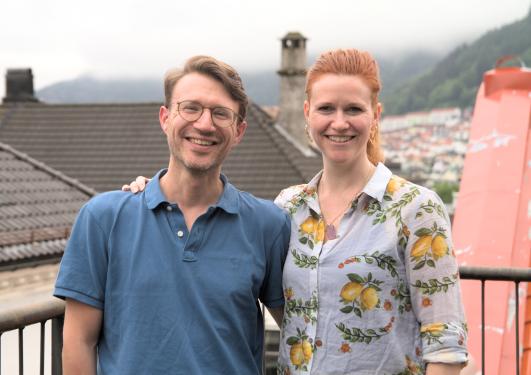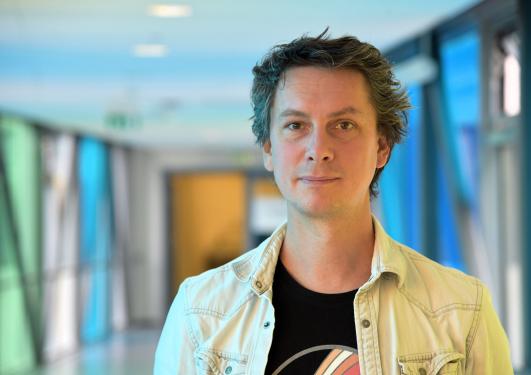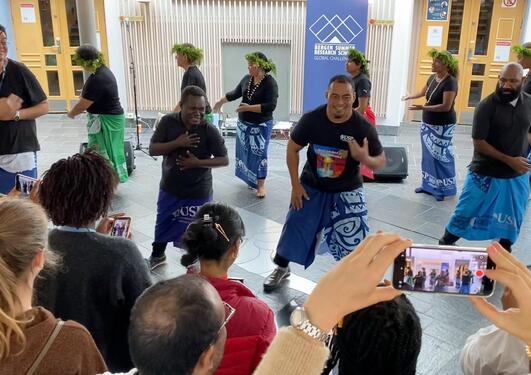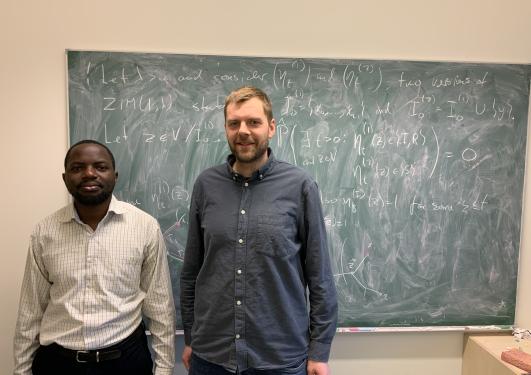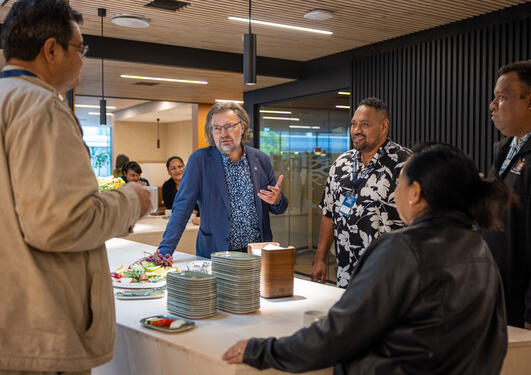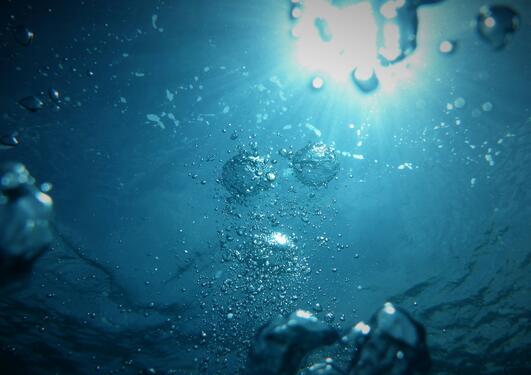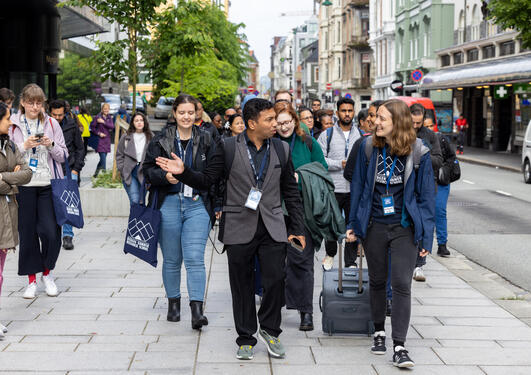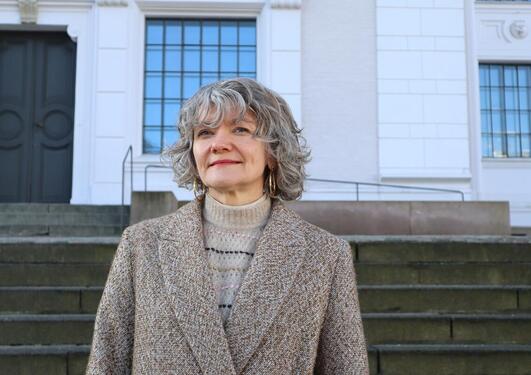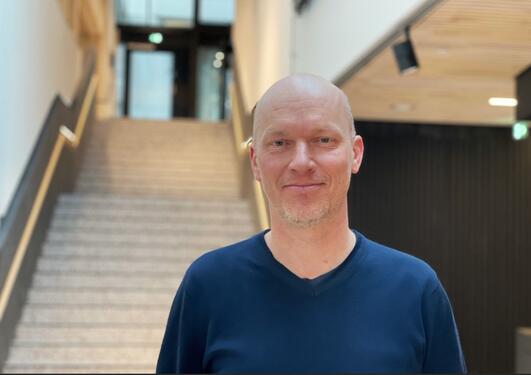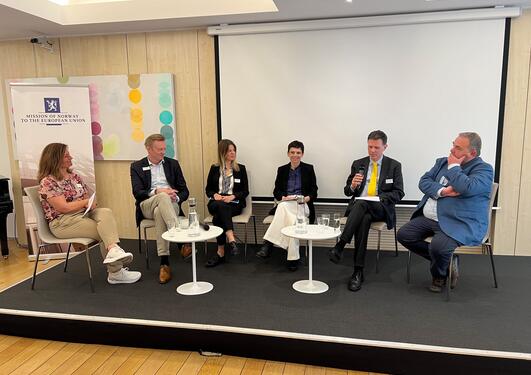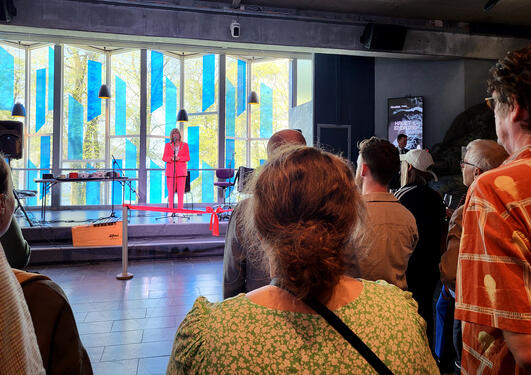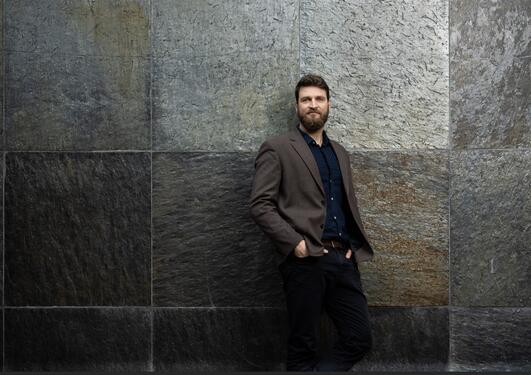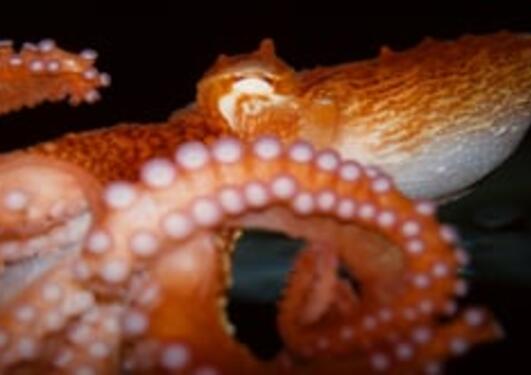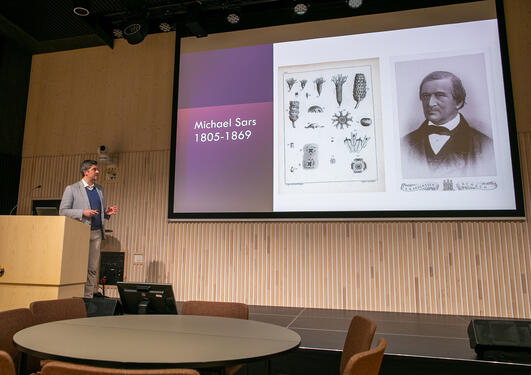News archive for News
Principal investigator Kerry Ryan Chance of the Habitable Air project spoke at the 2024 High-Level Political Forum (HLPF) at the United Nations in New York on the urgent issue of air pollution and how this impacts on climate change and public health.
«If climate policies want to be successful, they must be about more than climate,» professor Michaël Tatham says.
Many women experience symptoms such as brain fog, fatigue, and abdominal pain in the first part of pregnancy. Ground-breaking research from UiB can provide new answers to how genes can trigger such symptoms.
The Norway-Pacific Ocean-Climate (N-POC) Scholarship Programme is unique both in its content and scope. Both for its clear science-policy objectives and the way it’s been shaped as a truly joint doctoral programme.
For PhD candidate Frank Namugera having in person tuition with Associate Professor Stein Andreas Bethuelsen at the University of Bergen is probably the most valuable component of work on his PhD thesis.
The Norway-Pacific Ocean-Climate (N-POC) Scholarship Programme was an active ingredient at the 2024 Bergen Summer Research School, bridging ideas of scientific knowledge and traditional knowledge on the ocean-climate nexus during two hectic weeks in Bergen.
Researchers at UiB are doing comprehensive research on the unequal distributions of air pollution. Young children, people who are already sick, and elderly people are the most affected.
Offering a unique perspective on the latest advances in Developmental Biology, the Nordic Developmental Biology Societies & Michael Sars Symposium Joint Meeting attracted a diverse audience and strengthened connections between Nordic and international institutions.
The rise in ocean temperature in the past year is one of the most urgent threats to global equity and thus to global stability in a new geopolitical landscape. How can science contribute to solutions to this challenge?
“There is hope in science and research”, said Rector Margareth Hagen in her welcome address to the one hundred PhD candidates from more than thirty countries taking part in the seventeenth Bergen Summer Research School.
Some Norwegian politicians that are skeptical about gender quotas in politics are positive about gender quotas in the leadership of religious organizations, according to new research.
More than 10,000 interviews and a new method show that survivors of conflict-related sexual violence are actually more engaged in their communities afterwards.
Digital skills are crucial in society, and the need to provide these for all is becoming increasingly urgent. UiB and partners discussed solutions and possibilities at an event in Brussels recently.
Bergen Aquarium hosted an inaugural event for their latest exhibit, "Havet i endring" or "The Changing Ocean." The new installation features a 1200L aquarium showcasing jellyfish generously gifted by the Centre.
«Is there a response pattern that cuts across different crises? We don’t really know,» UiB researcher Pierre-Georges Van Wolleghem says. Now he wants to study just that.
A new study from the University of Bergen and the University of Exeter shows that pregnant women who quit smoking may prevent an abnormal mismatch between the weight of the placenta and the growth of the fetus.
On 9 April 2024 the University of Bergen organised an official satellite event on marine genetic resources, global benefit sharing and ocean science diplomacy at the Ocean Decade Conference in Barcelona. Watch a recording of the satellite event.
Amidst the festivities of One Ocean Week, researchers from the Michael Sars Centre embraced the opportunity to engage with the public on Family Day and participate in the Ocean Outlook conference.
Pages
- 2025
- 2024
- 2023
- 2022
- 2021
- 2020
- 2019
- 2018
- 2017
- 2016
- 2015
- 2014
- 2013
- 2012
- 2011

